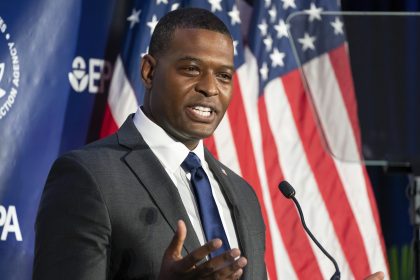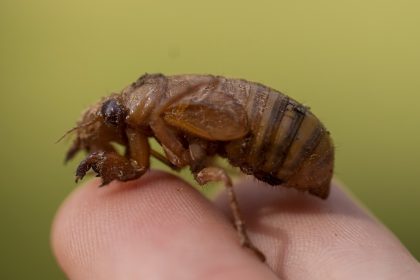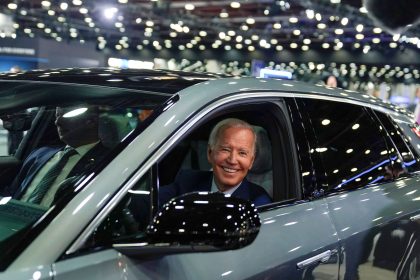Supreme Court Rules Beaches Can Be Protected From Sewage That Flows Underground

WASHINGTON — The Supreme Court bolstered the nation’s clean-water protections for oceans and beaches on Thursday, ruling that environmentalists can sue to block discharges of sewage into the ground if those pollutants flow in significant amounts from there into the ocean.
In a 6-3 ruling, the high court said the Clean Water Act forbids not only direct discharges of sewage or other pollution into the ocean or bays, but also their “functional equivalent,” if it is shown that sewage is ending up along the beaches.
The justices upheld lawsuits from four environmental groups in Hawaii that had sued over sewage that was flowing from treatment plants through the groundwater and into the ocean off Maui.
The county of Maui, with the support of the Trump administration, appealed to the Supreme Court, arguing that the Clean Water Act protected only against “direct discharges” of pollutants into waterways and not pollution from ground water.
Justice Stephen G. Breyer, speaking for the court, disagreed in County of Maui vs. Hawaii Wildlife Fund. “We conclude that the statutory provisions at issue require a permit if the addition of the pollutants through groundwater is the functional equivalent of a direct discharge from the point source into navigable waters,” he said.
Time and distance are key factors, he said, in deciding whether pollution flowing through the groundwater can be attributed to a treatment facility.
His opinion did not go as far as the 9th U.S. Circuit Court of Appeals, which had decided that the law’s permitting rule applies to any water pollution that is “fairly traceable” to pollution flowing into the ground. That goes too far, Breyer said, because it could extend to 650,000 wells and 20 million septic tanks nationwide, most of which are distant from a river or bay.
But the court’s rule should cover significant discharges of pollutants that flow through the groundwater to protected waters.
“This decision is a huge victory for clean water,” said David Henkin, an attorney from the environmental public interest group Earthjustice who argued the case. “The Supreme Court has rejected the Trump administration’s effort to blow a big hole in the Clean Water Act’s protections for rivers, lakes and oceans.”
The high court remanded the case to the 9th Circuit to apply the new standard.
The county of Maui operates a wastewater reclamation facility on the island of Maui, Hawaii. The facility collects sewage from the surrounding area, partially treats it, and pumps the treated water through four wells hundreds of feet underground. This effluent, amounting to about 4 million gallons each day, then travels a farther half mile or so, through groundwater, to the ocean. Studies found that the pollution had damaged the coral reef near a Maui beach.
The law requires obtaining a permit before discharging pollutants from a “point source” into protected waterways, like a river or bay. At issue was whether the county could be sued for failing to obtain a clean-water permit before discharging pollutants that flowed underground into the ocean. This law can be enforced through “citizen suits” and four groups — the Hawaii Wildlife Fund, Sierra Club, Surfrider Foundation and West Maui Preservation Association — joined to file suit against the county of Maui.
The Environmental Protection Agency under President Barack Obama had supported the environmentalists when the suits were before a judge in Hawaii. But the Trump administration switched sides and supported the county in its effort to limit the reach of the law.
Joining Breyer’s opinion were Chief Justice John G. Roberts Jr. and Justices Ruth Bader Ginsburg, Sonia Sotomayor, Elena Kagan and Brett M. Kavanaugh.
“I would hold that a permit is required only when a point source discharges pollutants directly into navigable waters,” said Justice Clarence Thomas in dissent, joined by Justice Neil M. Gorsuch.
Justice Samuel A. Alito Jr. filed his own 18-page dissent deriding the “functional equivalent” standard. “If the court is going to devise its own legal rules, instead of interpreting those enacted by Congress, it might at least adopt rules that can be applied with a modicum of consistency. Here, however, the court makes up a rule that provides no clear guidance and invites arbitrary and inconsistent application,” he wrote.
The ruling applies not just to oceans, but also to waterways across the country, and it could pose problems for the operators of wastewater treatment plants as well as large hog farms. A coalition of California water agencies had urged the court to reverse the 9th Circuit and rule the Clean Water Act did not extend to pollution from groundwater.
Michael Kimberly, a Washington lawyer who filed a brief on behalf of agricultural business organizations, said the court’s new rule “is amorphous and leaves much to be desired. It leaves countless responsible landowners potentially liable for discharges from ‘point sources’ to ‘navigable waters’ that aren’t actually anything of the sort. I would hope and expect an EPA and Army Corps of Engineers rule-making to elaborate the standard in more concrete terms, which the opinion expressly invites.”
———
©2020 Los Angeles Times
Distributed by Tribune Content Agency, LLC.

























